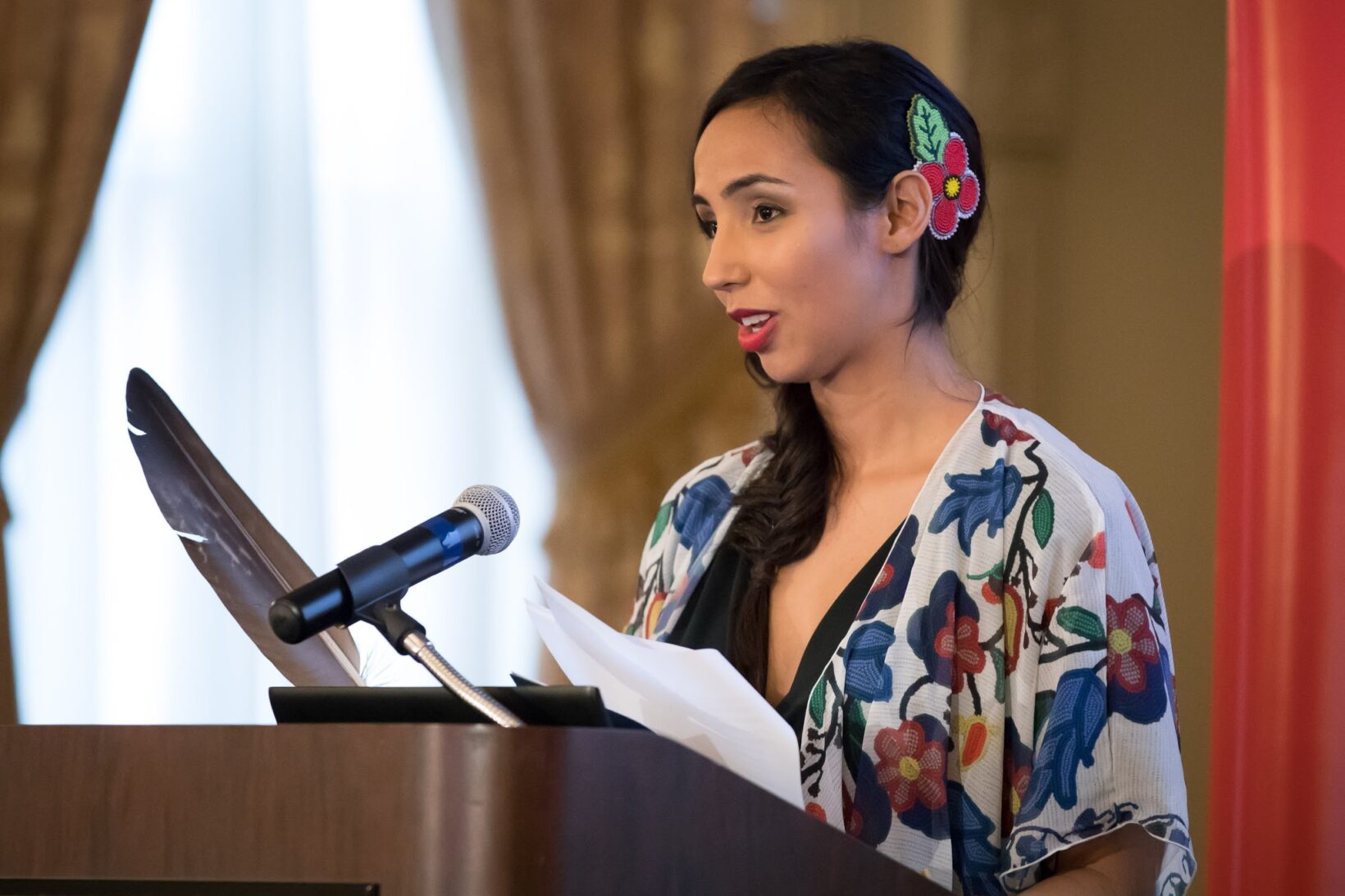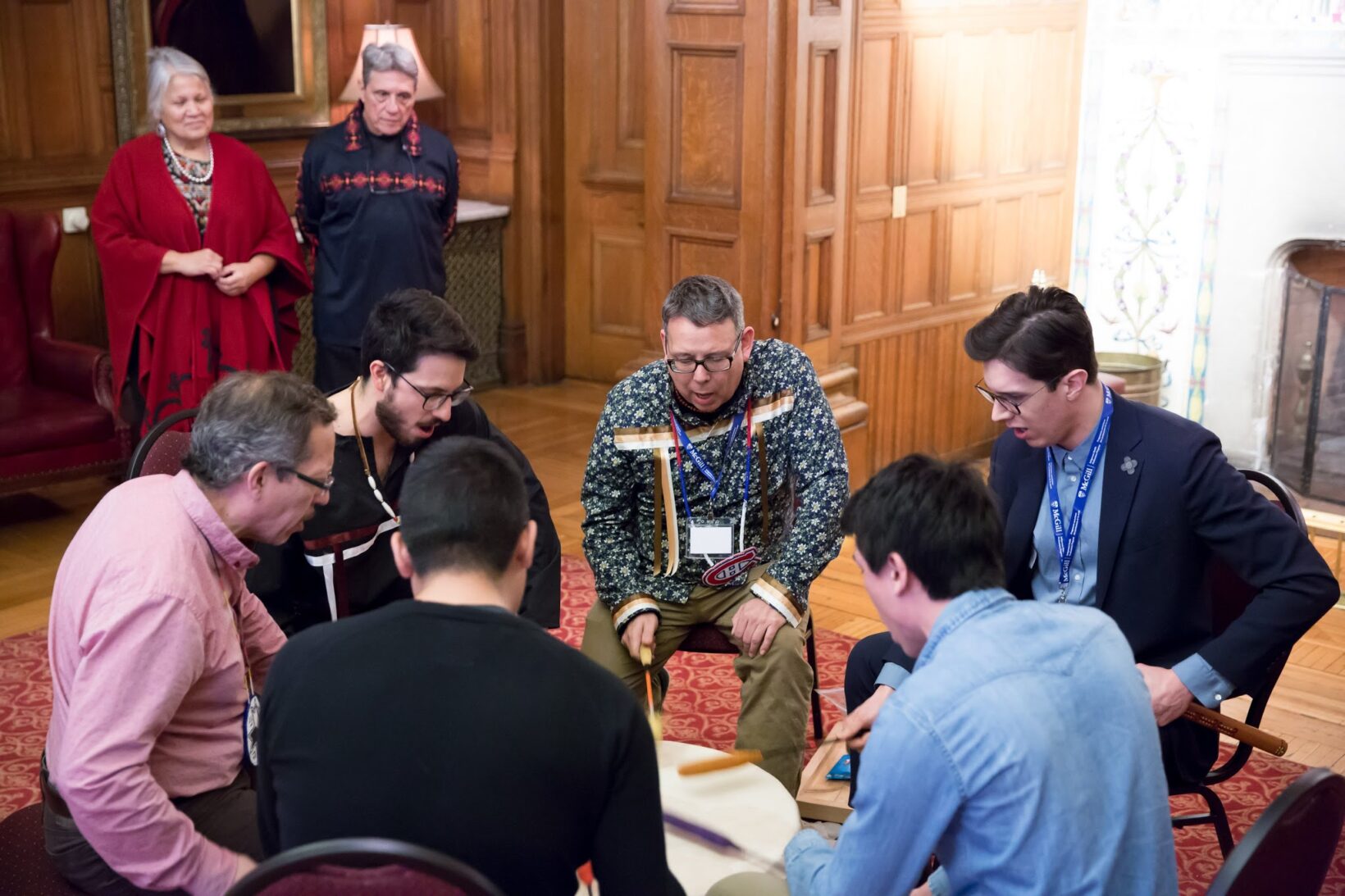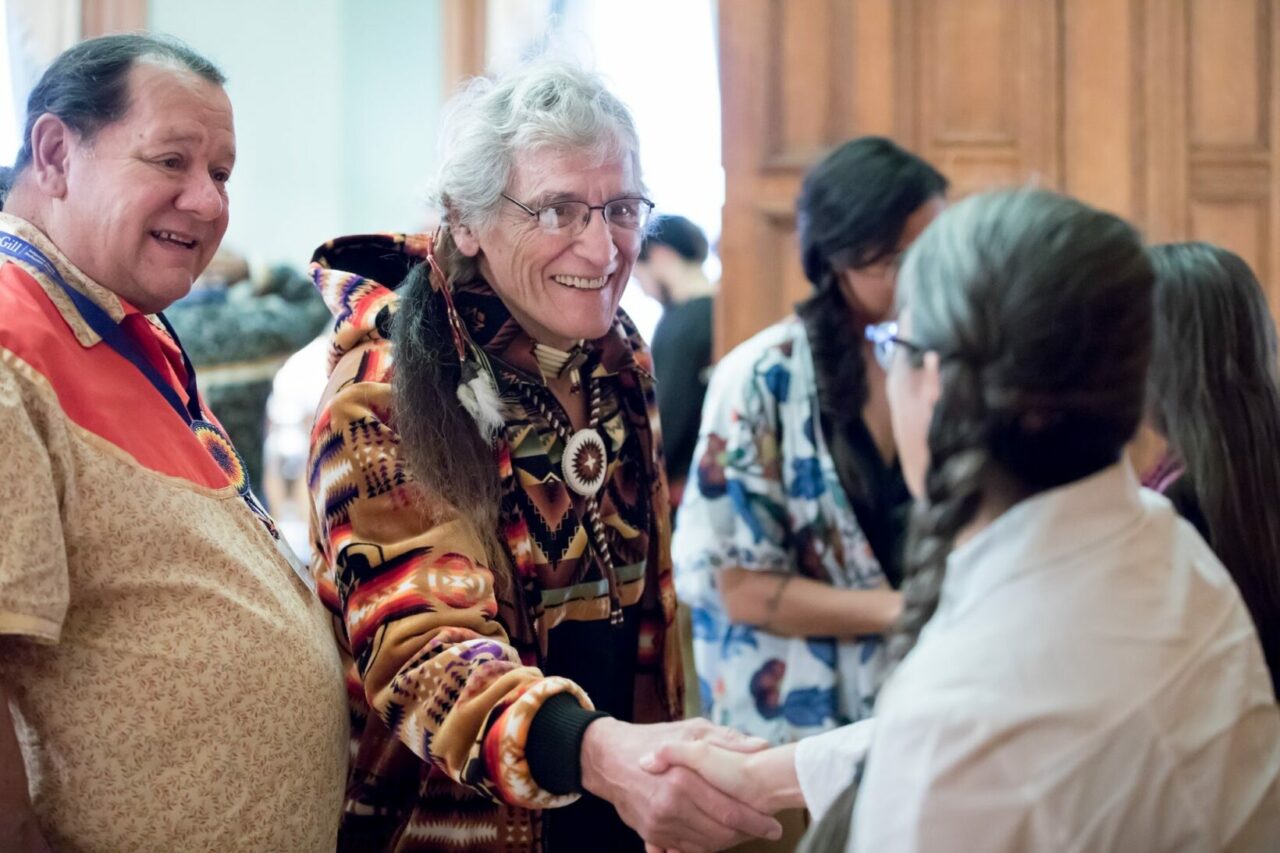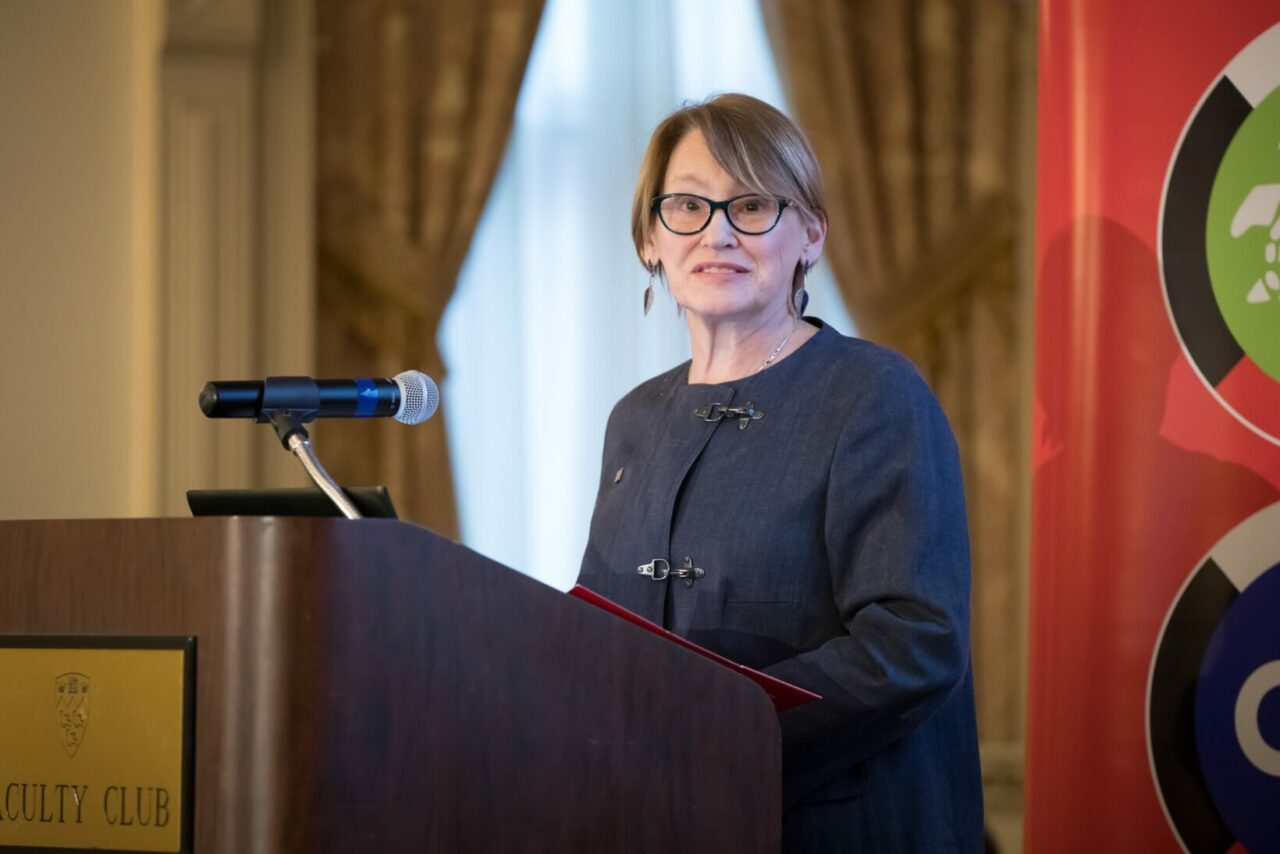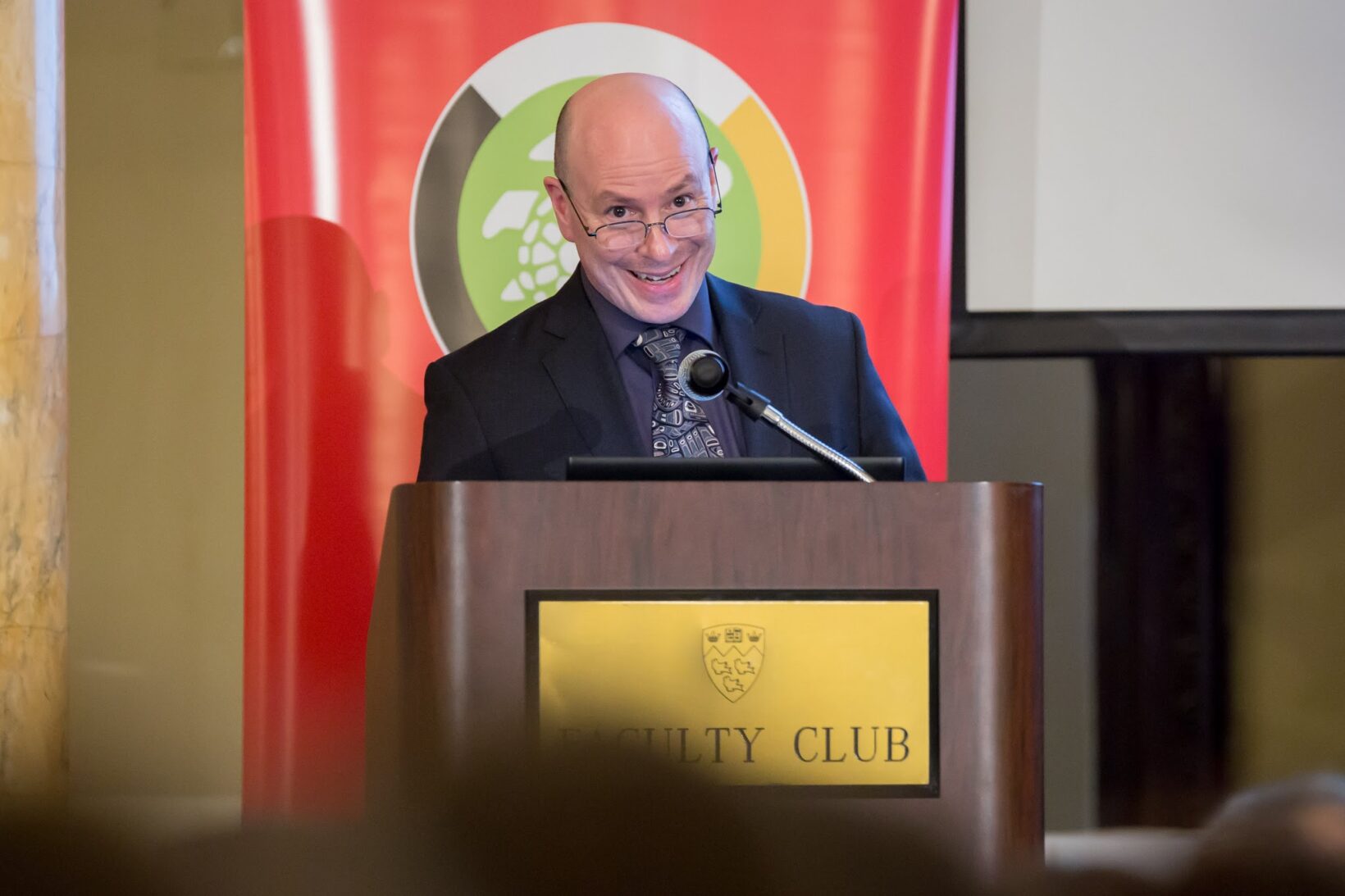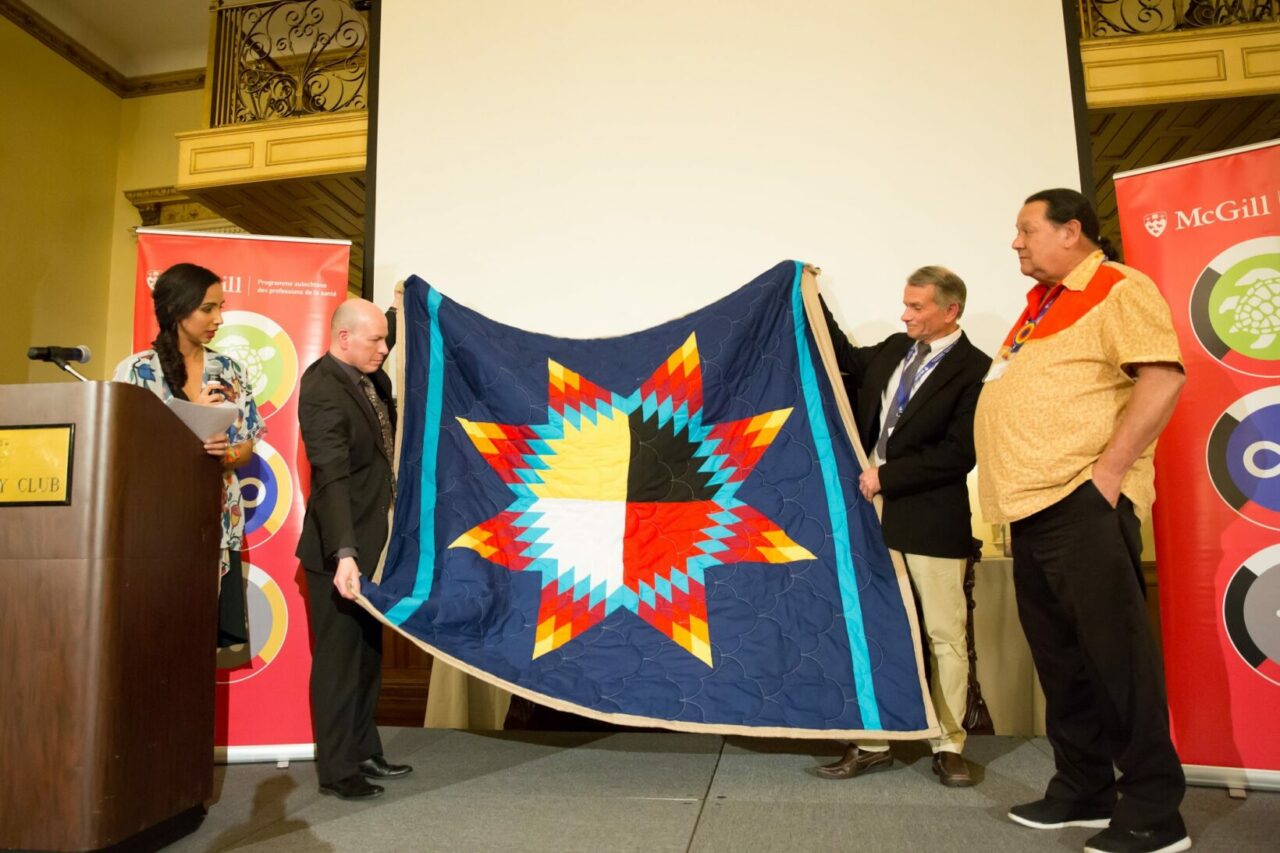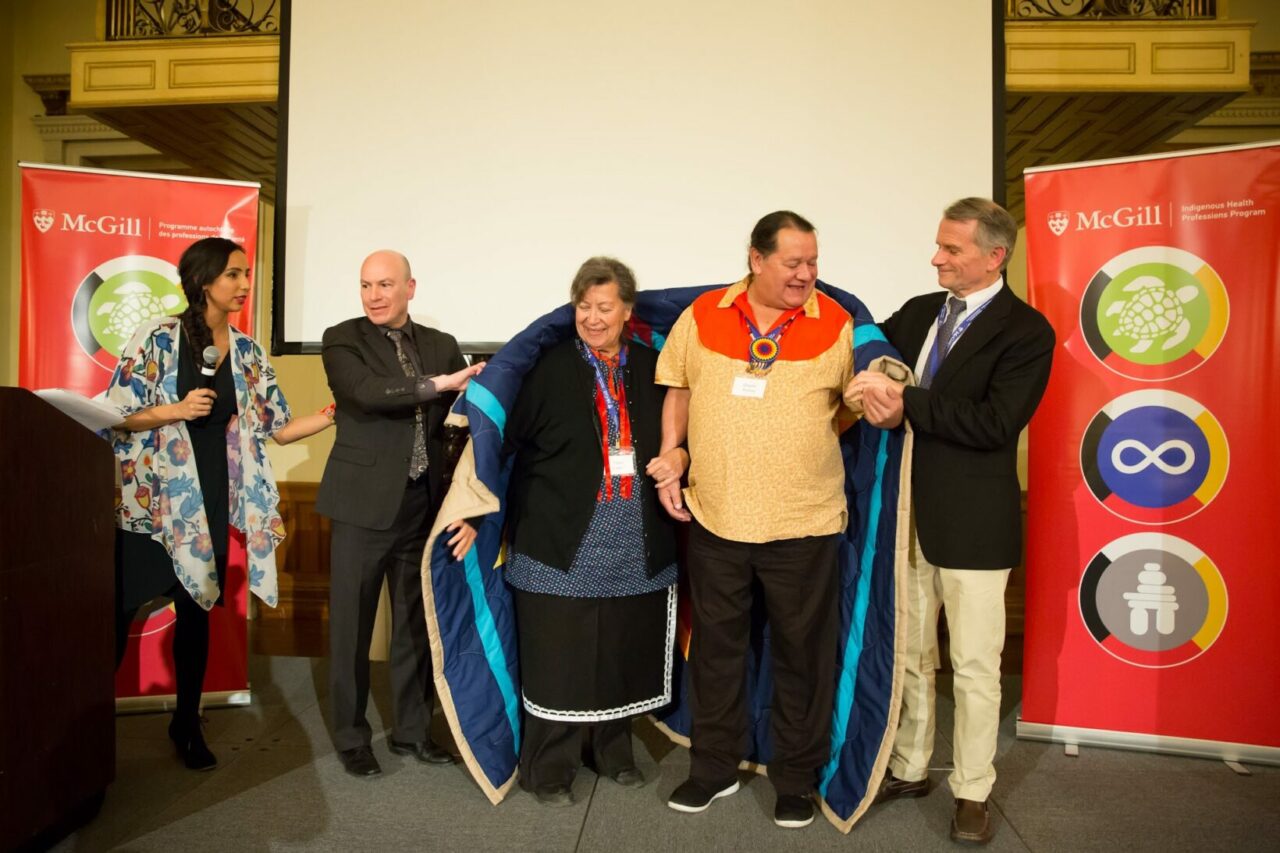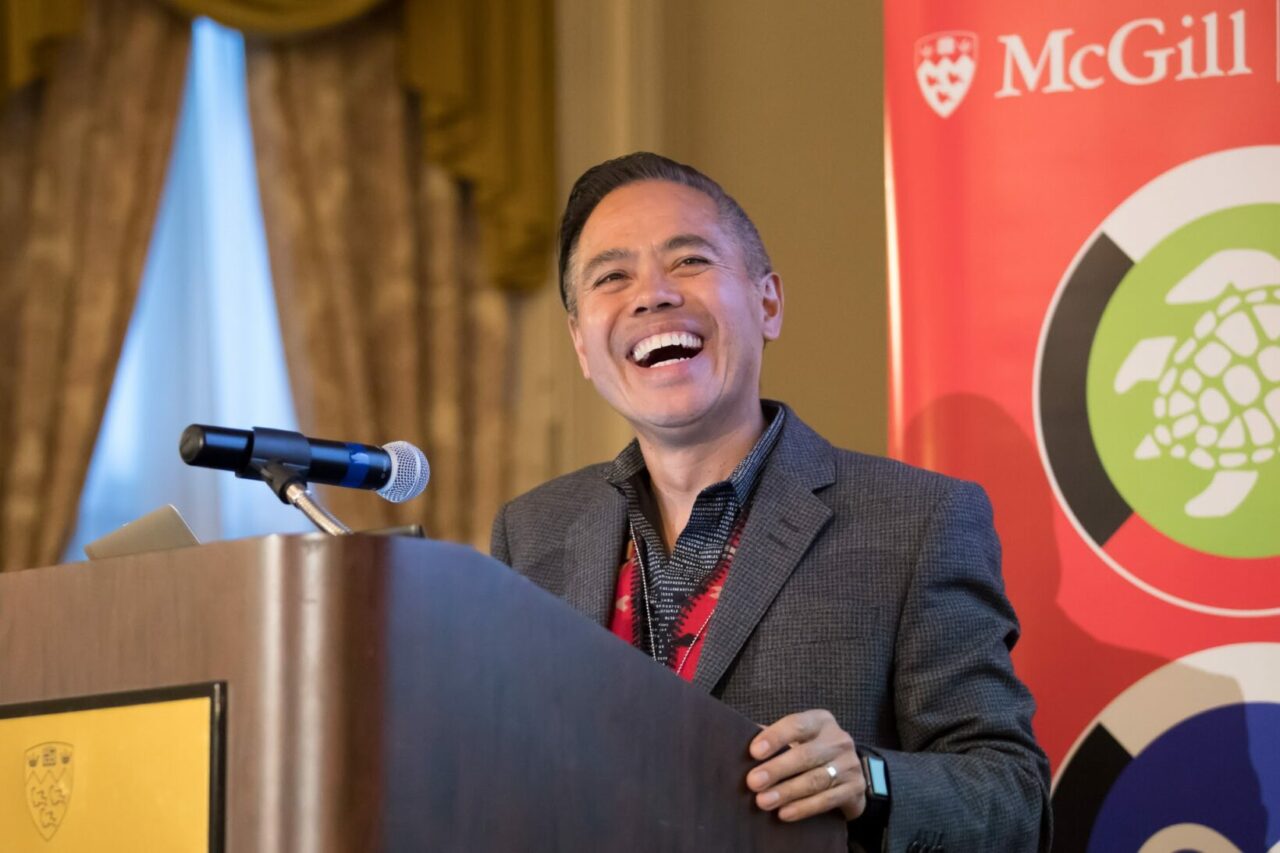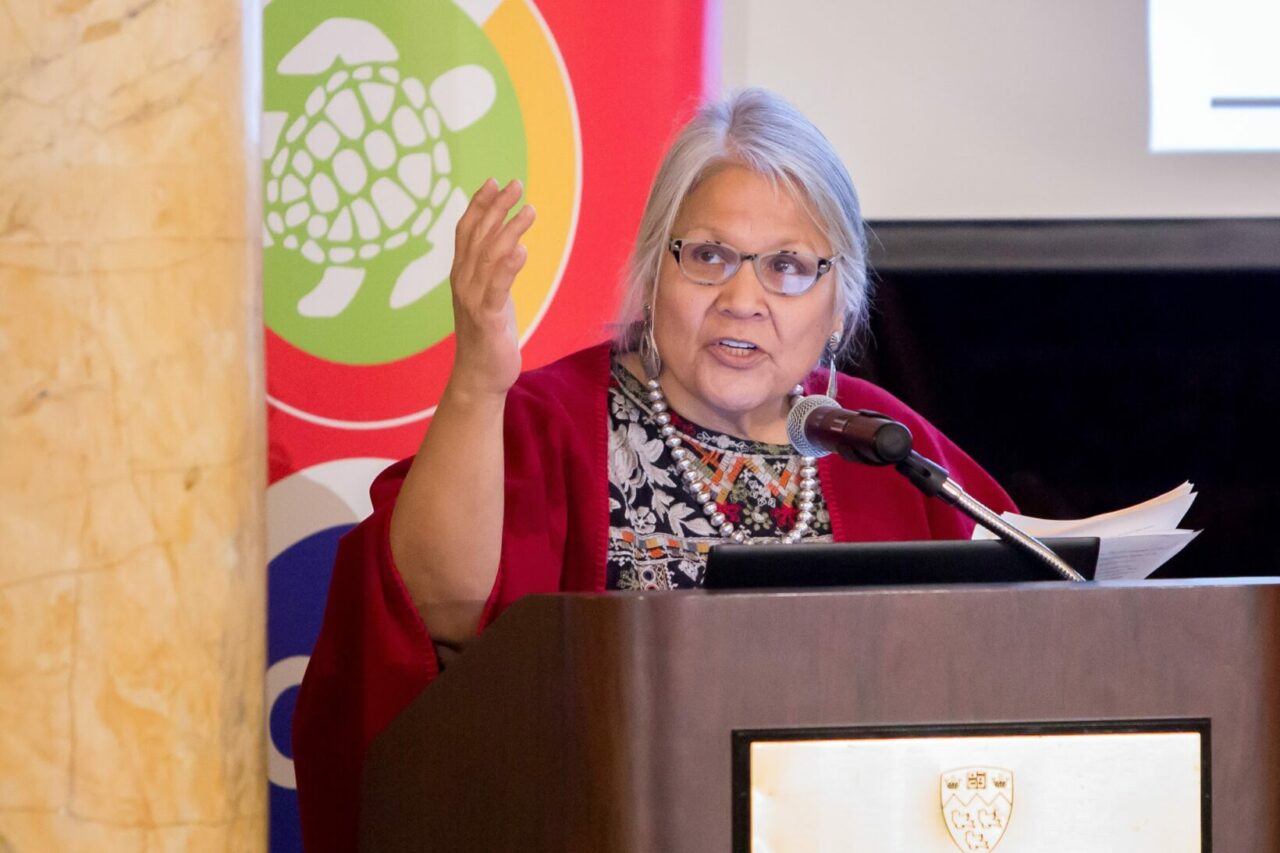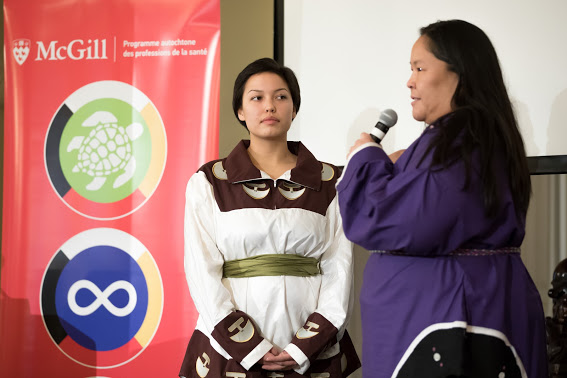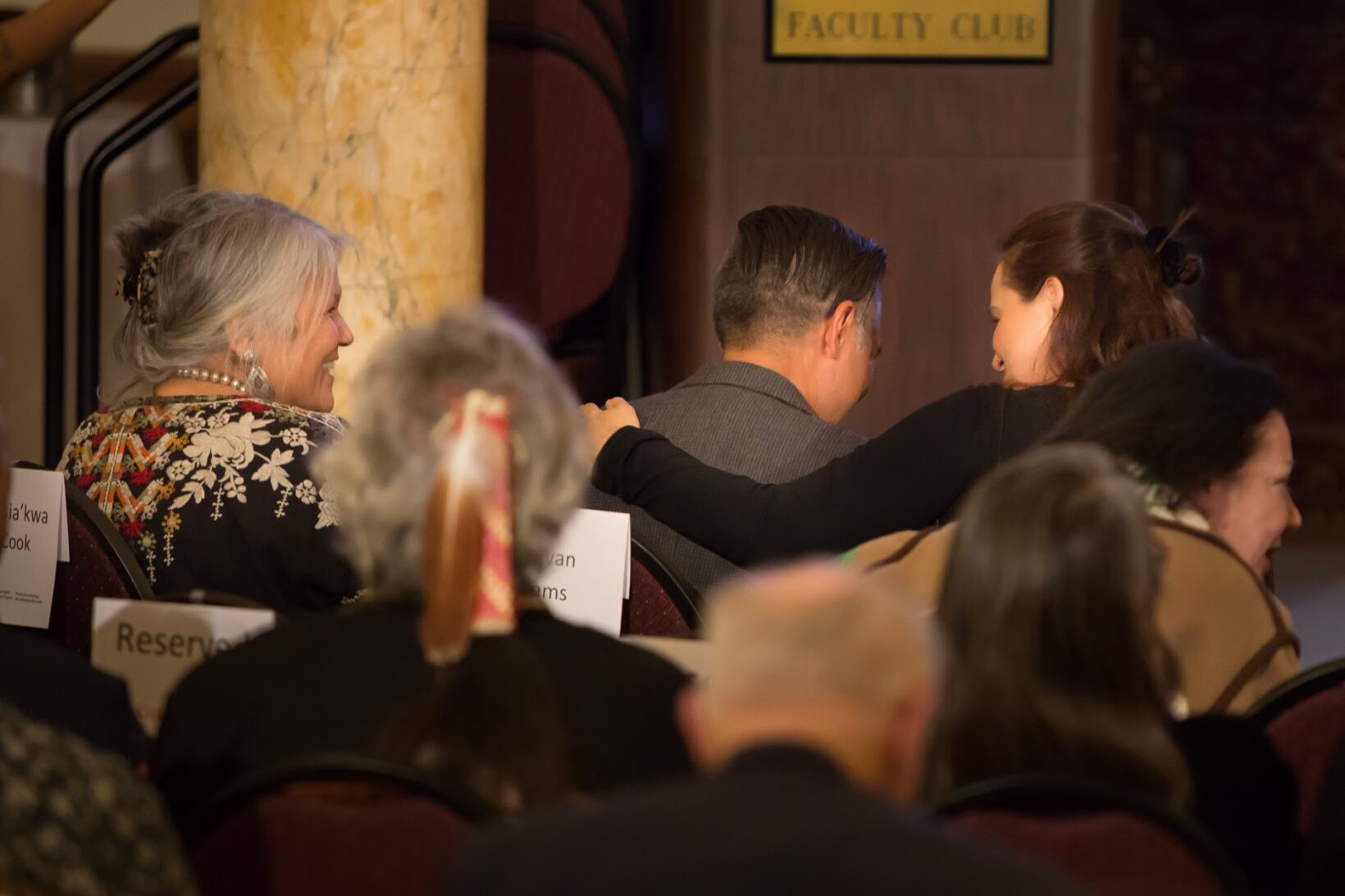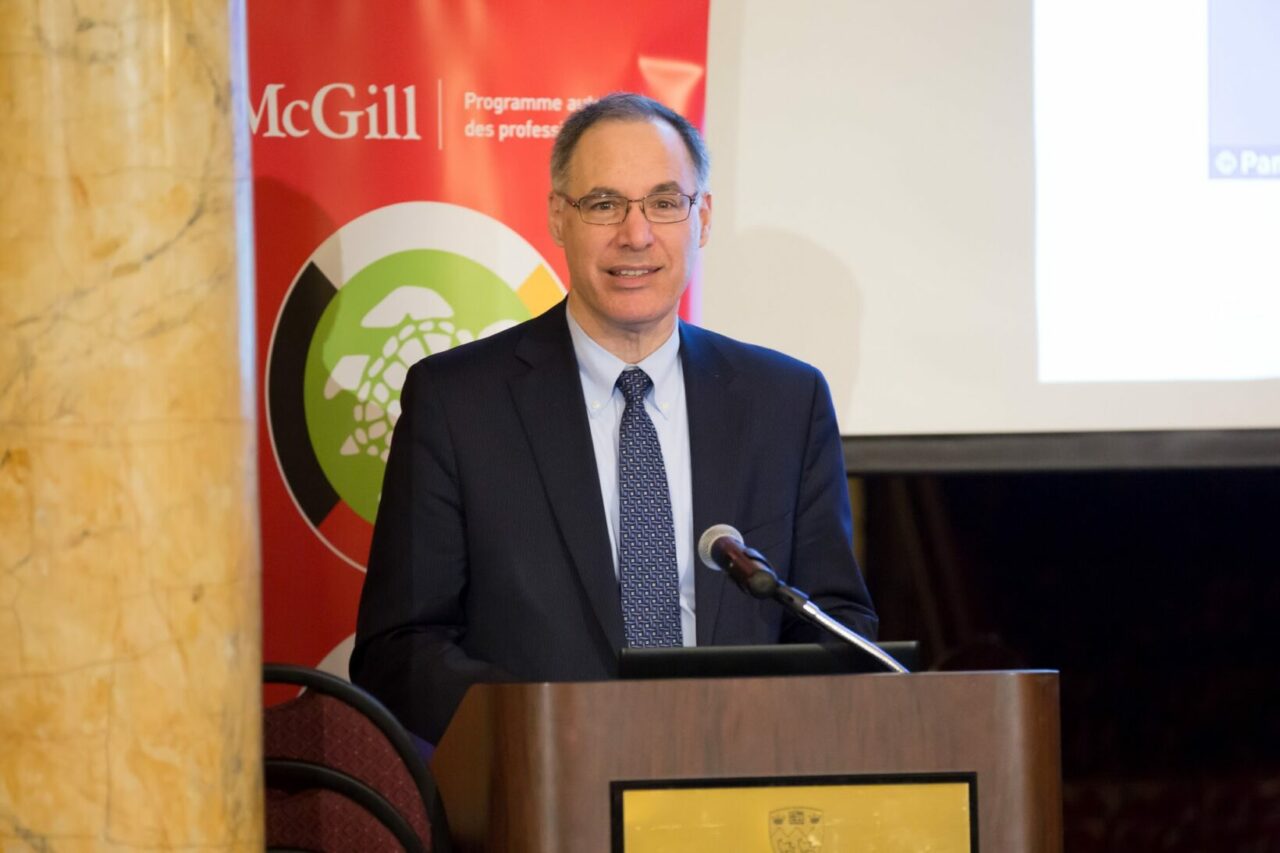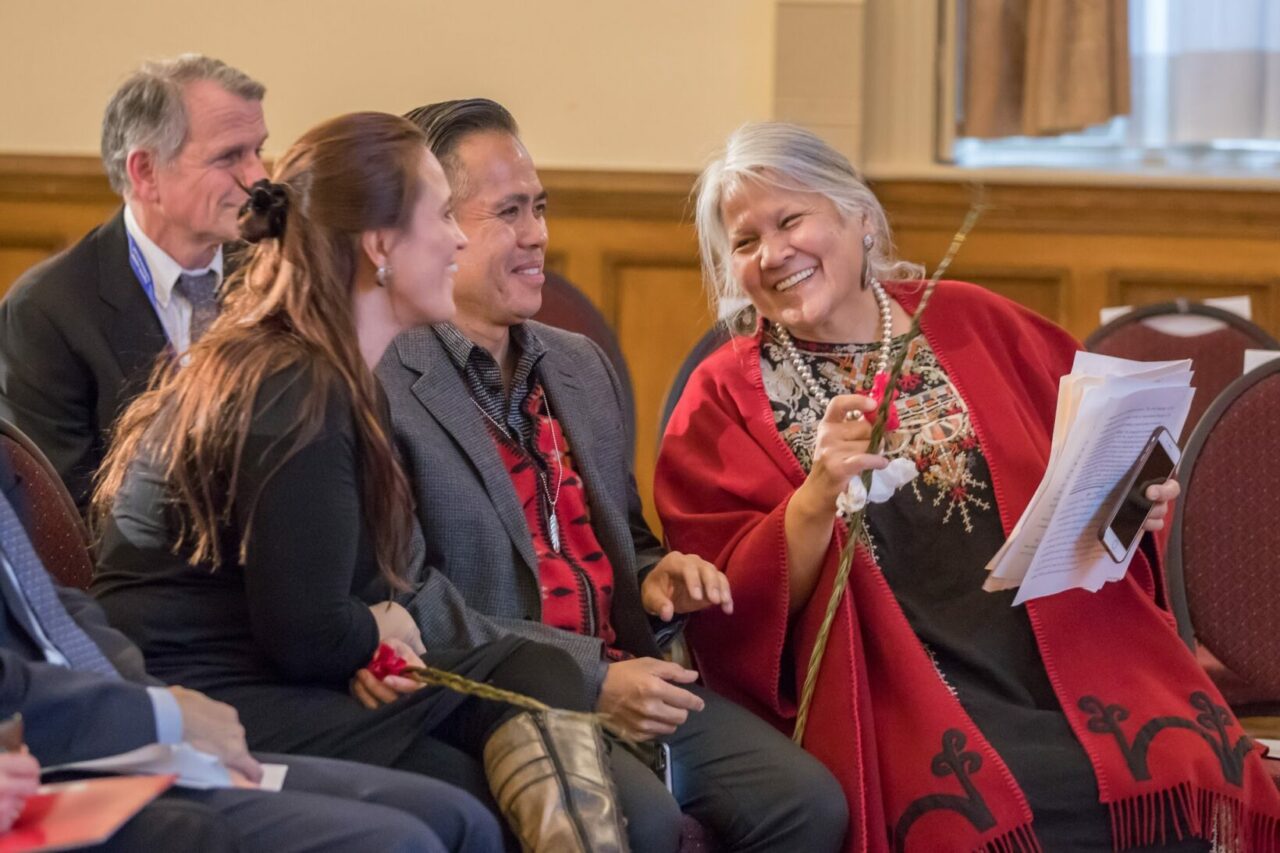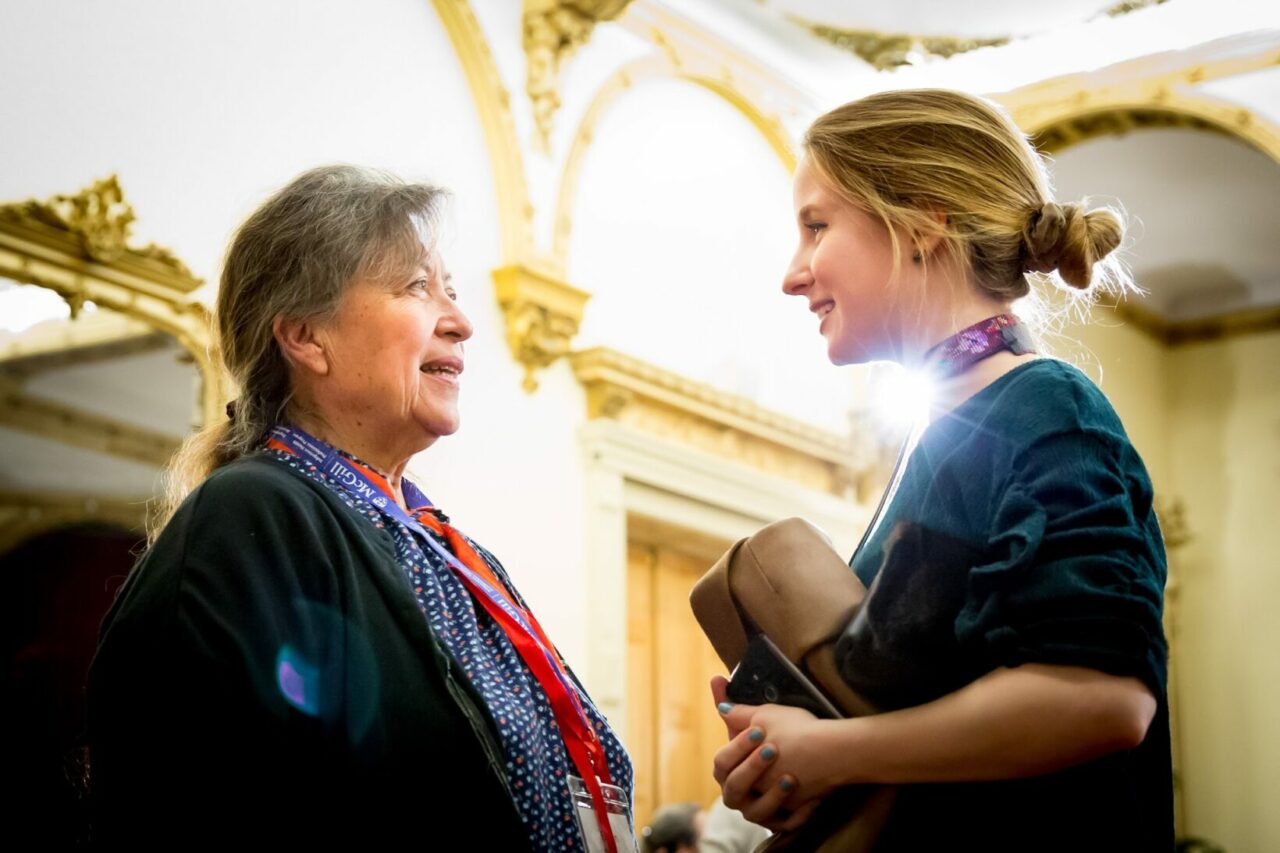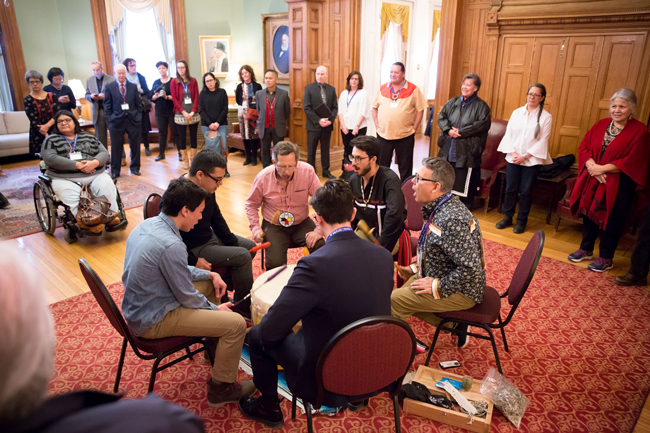
Indigenous Health Profession Program launched on March 1
By McGill Reporter Staff
The fragrance of sage hung in the air and the sound of drumming and singing was heard at the Faculty Club on March 1, from 4–7 p.m. for the official launch of the Indigenous Health Professions Program (IHPP).
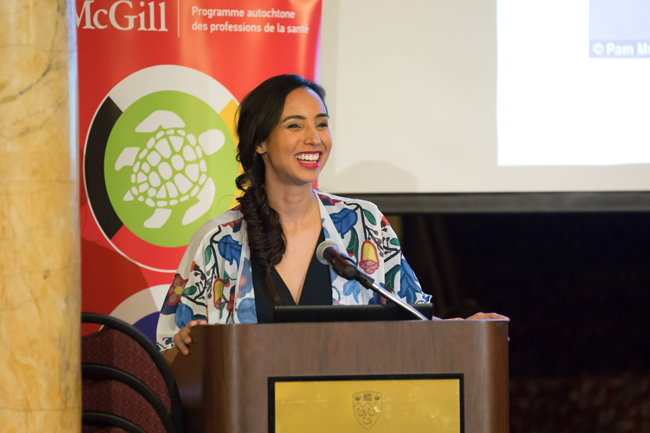
“We welcome you to this ceremony, elders, Chiefs, change-makers, activists, students, educators, health professionals and allies. For us this is a ceremony,” IHPP Program Manager, Jessica Barudin, Kwakwaka’wakw, from the Namgis First Nation in British Columbia, told the group. “We are grateful to gather on this suburb of Kahnawake – we are in Mohawk territory. And as my elder always tells me, you know it will be a good ceremony when you have an elder and a baby.
“Elders? Check. Baby? Check,” Barudin smiled, referring to her own 10-month old daughter in her father’s arms.
Dr. Horn was followed by Mohawk elder and midwife Katsi Cook, who did some traditional singing and delivered a powerful speech.
“Canada is a leader in the world for its recognition of aboriginal midwifery. We are moving toward the restoration of the meaning and practice of indigenous ways of knowing,” said Cook. “It is my radical hope that with this new program we will launch more love, compassion, and kindness into the world.”
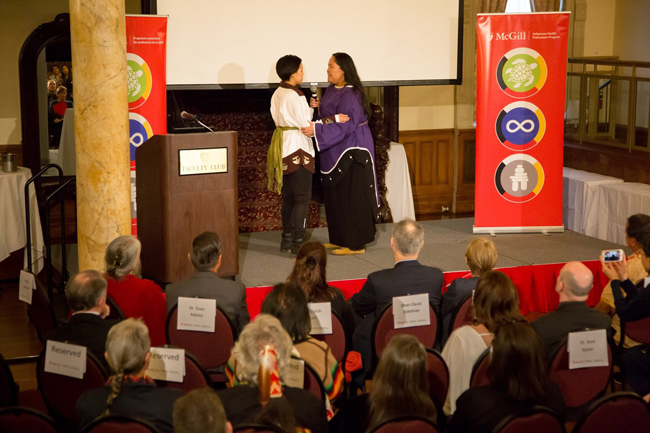
The mother/daughter duo Nina and Sierra Segalowitz completely charmed the room with their Inuit throat singing and laughter. They were followed by Principal Suzanne Fortier.
Principal Fortier acknowledged the traditional stewards of the lands, the Haudenausaunee and Anishinabeg nations, and told the crowd, “In 2016, Provost Christopher Manfredi launched the Task Force in to Indigenous Affairs. In 2017, the Task Force issued 52 calls to action to start the journey of transformation that is inclusive of Indigenous ways of knowing. We will heed the call with enthusiasm and humility.”
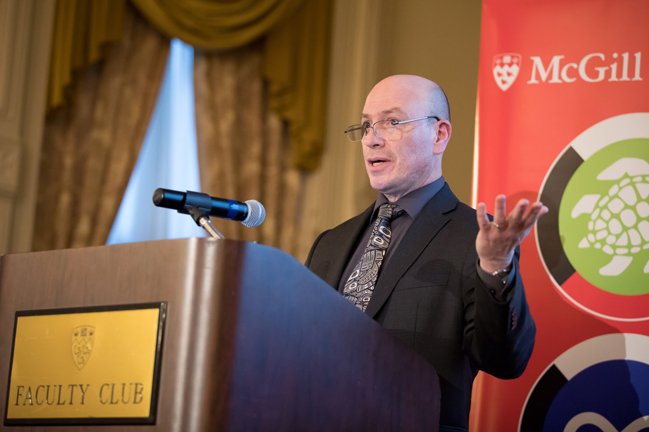
“Guess which medical school I ended up going to?” Saylor asked. “Stanford. The cold, short letter of rejection was from McGill. Now, our job is to do better, to see beyond just grades, to welcome those with Indigenous knowledge. It is a privilege to train and welcome Indigenous students and educate the community about our ways.”
Dr. Saylor is a pediatrician and a Mohawk from Kahnawake. He has mentored a number of Indigenous medical students at McGill, and through his work in Indigenous communities reaches out to prospective students hoping to draw them into medicine and allied health fields.
As head of the IHPP, Dr. Saylor is working in collaboration with Indigenous consultants and the McGill Faculty of Education on initiatives to encourage Indigenous students to consider healthcare careers. One of the most successful IHPP initiatives is the Eagle Spirit Camp, which brings Indigenous youth to McGill each year to introduce them to the Faculty and the City of Montreal, as well as a summer school program to help Indigenous students hone their math and science skills.
Dr. Saylor gives credit to Dr. Dick Menzies for initiating the consultation process that gave rise to the IHPP. “The launching of this program is a turning point for McGill,” said Dr. Menzies, a respirologist specializing in the treatment and study of tuberculosis, and Assistant Director of the IHPP. “In Quebec, 2–3 per cent of the population is Indigenous. Out of 18,000 doctors in Quebec, only 12 are indigenous. We clearly have to work very hard to catch up to what is needed.”
At the moment there are seven Indigenous students in medicine, two in Occupational Therapy, and 10 in Social Work, at McGill. Indigenous populations are severely under-represented in every cadre of health care professional. In Nunavik, there are no Inuit physicians, and with only two Inuit nurses, there are almost no health professionals – pharmacists, dentists, physiotherapists or speech therapists.
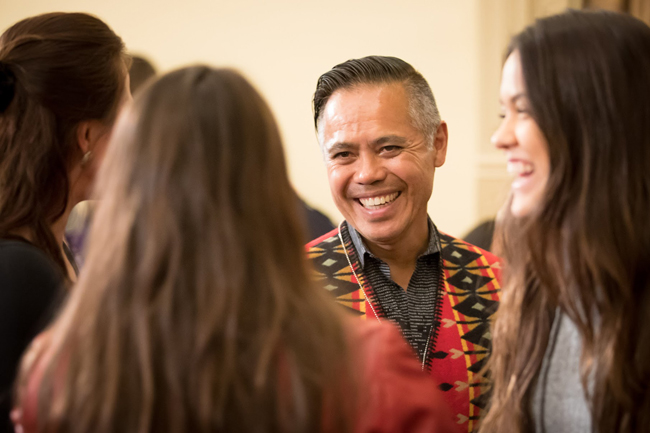
The keynote lecture at the launch was given by Dr. Evan Adams, Chief Medical Officer (on sabbatical), First Nations Health Authority, British Columbia. Dr. Adams is the son of residential school survivors, and gave a moving description of his path to medicine, with a detour into acting. “I ran into quite a lot of racism and colonialism as a medical student. In one instance, when I was doing my residency, while in the physician’s lounge at the hospital, a security guard came up to me and said ‘One of the doctors is concerned that there is an Indian in the lounge.’ I didn’t get mad. I simply said ‘Yes, and you better get used to it.”
Following words of thanks from Vice-Principal, Health Affairs and Dean of Medicine David Eidelman to the Indigenous communities whose insights have helped shape the IHPP, the launch ceremony drew to a close with the Honoring of Elder Charlie Patton and his wife Eileen Sawyer Patton with a star blanket, in acknowledgement of their dedication and support to the students, youth initiatives, and the creation of the IHPP. With the help of other traditional speakers, Elder Charlie shared the Mohawk name of the program: Eniethi’nikonhraiéntho’ (We’ll plant a seed in their minds)
The reception afterwards featured Indigenous foods including moose, arctic char, salmon, venison, Indian tacos and strawberry juice.
Academia | McGill celebrates official launch of Indigenous Health Professions Program: Eniethi’nikonhraiéntho’
Radio-Canada | À l’écoute des Autochtones pour mieux les soigner
